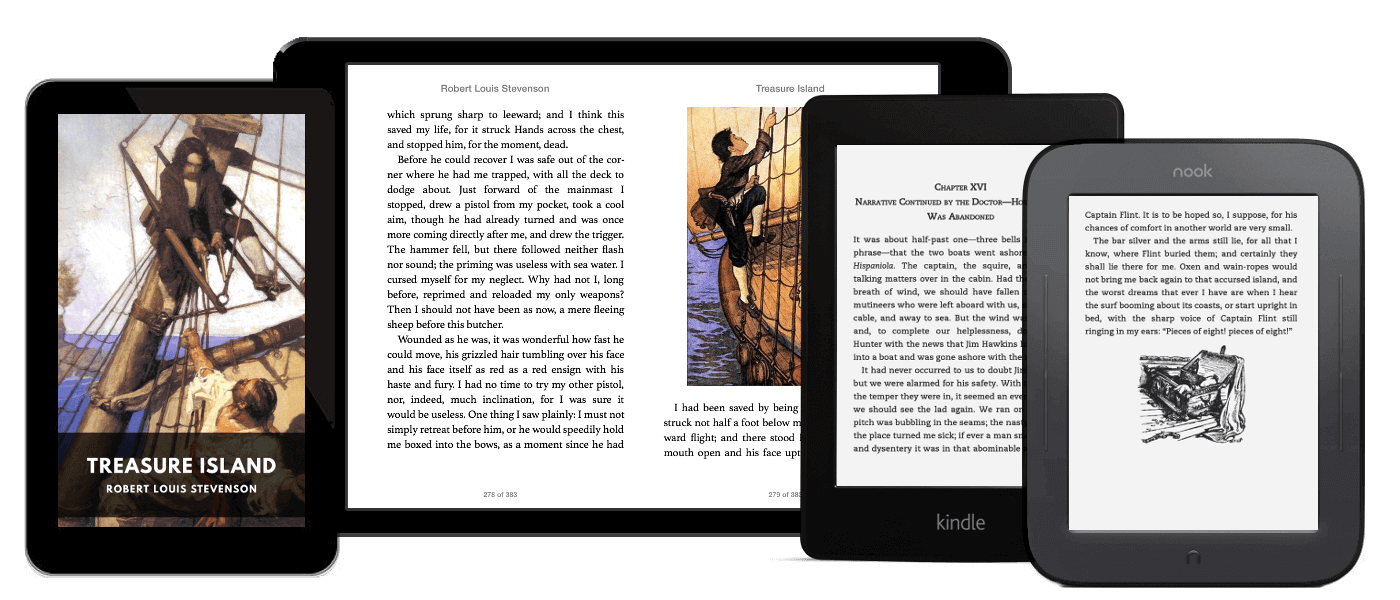In the ever-evolving landscape of literature and information consumption, ebooks have emerged as a transformative force, reshaping the way we access, read, and interact with written content. Far from being a fleeting trend, they have carved a permanent niche in the hearts of readers worldwide, bridging the gap between traditional print books and the digital realm. This comprehensive exploration delves into the origins, evolution, benefits, challenges, and the future of ebooks, painting a vivid picture of their indelible mark on the literary world.

The Birth of Ebooks: A Digital Revolution
From Concept to Reality
The concept of electronic books dates back further than many realize, with early prototypes appearing in the 1970s. However, it wasn’t until the late 1990s and the early 2000s, with the advent of portable devices like Palm Pilots and the launch of Amazon’s Kindle in 2007, that ebooks truly took off. These devices democratized access to reading materials, making entire libraries portable and instantly accessible.
The Kindle Effect
Amazon’s Kindle played a pivotal role in popularizing ebooks. Its e-ink display mimicked the look of paper, reducing eye strain, while its wireless connectivity allowed users to purchase and download books on the go. The Kindle Store’s vast library and competitive pricing disrupted the publishing industry, propelling ebooks into mainstream consciousness.
The Ebook Experience: Convenience and Accessibility
Reading Anytime, Anywhere
One of the most significant advantages of ebooks lies in their unparalleled convenience. With a single device, readers can carry thousands of books, eliminating the need for physical storage space and making it possible to switch between titles effortlessly. This feature is particularly appealing to avid readers, travelers, and students who value portability and instant access to information.
Accessibility for All
Ebooks have opened up new avenues for individuals with visual impairments or reading difficulties. Features such as adjustable font sizes, text-to-speech capabilities, and screen reader compatibility empower readers who previously faced barriers with traditional books. This inclusive nature of ebooks underscores their potential to democratize knowledge and foster a more literate society.
Environmental and Economic Benefits
A Greener Reading Option
Ebooks offer a more environmentally friendly alternative to print books. The production, transportation, and disposal of physical books contribute to deforestation and carbon emissions. In contrast, ebooks generate significantly fewer carbon footprints, preserving natural resources and aligning with global sustainability goals.
Cost Savings and Revenue Shifts
For readers, ebooks often come at lower prices compared to their hardcopy counterparts, making literature more affordable and accessible. This shift has also impacted the publishing industry, forcing publishers to adapt their business models and authors to explore new distribution channels. While some argue that the ease of self-publishing has saturated the market, others celebrate the democratization of authorship, giving voice to diverse narratives.
Challenges and Controversies Surrounding Ebooks
The Digital Divide
Despite the numerous advantages, ebooks highlight existing inequalities in access to technology. The digital divide, particularly evident in developing countries and marginalized communities, limits ebook adoption and perpetuates educational disparities. Addressing this issue requires concerted efforts to bridge the gap and ensure equitable access to digital reading resources.
The Debate Over Ownership and Privacy
Unlike physical books, ebooks are subject to digital rights management (DRM), which restricts sharing and lending. This has sparked debates about ownership and control, with readers often feeling they are merely renting digital content. Moreover, concerns over data privacy arise as ebook platforms collect user data for targeted advertising and recommendations.
The Future of Ebooks: Innovation and Integration
The future of ebooks holds tremendous potential for innovation and integration, paving the way for a dynamic and immersive reading experience. Here are some key areas where we can expect to see advancements and integration in the world of ebooks:
1. Enhanced Interactive Features
- Integration of virtual reality (VR) and augmented reality (AR) technology to create immersive storytelling experiences.
- Implementation of interactive elements such as 3D models, animations, and gamification to engage readers on a deeper level.
2. Personalized Reading Experiences
- Advancements in artificial intelligence (AI) and machine learning to deliver personalized recommendations based on reading preferences, behavior, and historical data.
- Integration of adaptive learning algorithms to tailor content and learning materials to the individual reader’s skill level and interests.
3. Multi-Modal Content Integration
- Integration of multimedia elements such as audio narration, sound effects, and background music to enhance the storytelling experience.
- Seamless integration of text, images, videos, and interactive components to create a multi-sensory reading experience.
4. Collaboration and Social Integration
- Development of collaborative reading platforms that enable readers to discuss, share annotations, and interact with fellow readers within the ebook environment.
- Integration of social media features to facilitate book discussions, author interactions, and community engagement within the ebook ecosystem.
5. Accessibility and Inclusivity
- Integration of accessibility features such as text-to-speech, screen reader compatibility, and customizable user interfaces to cater to diverse reading needs.
- Expansion of ebook formats to support multiple languages, braille displays, and other accessible formats to ensure inclusivity for all readers.
6. Blockchain and Digital Rights Management
- Integration of blockchain technology to enhance digital rights management, secure distribution, and transparent ownership of digital content.
- Implementation of smart contracts and decentralized publishing platforms to empower authors and creators while ensuring fair compensation and copyright protection.
7. Seamless Cross-Platform Integration
- Development of unified reading platforms that seamlessly synchronize reading progress, annotations, and preferences across multiple devices and operating systems.
- Integration of cloud-based solutions for seamless access to ebooks from any device, ensuring a consistent reading experience regardless of the reader’s hardware or software environment.
The future of ebooks is poised to be a convergence of cutting-edge technology, reader-centric innovation, and seamless integration across various aspects of the digital reading experience. As the ebook landscape continues to evolve, these advancements will not only enhance the way readers engage with content but also broaden the scope of storytelling and knowledge dissemination in the digital age. By embracing innovation and integration, ebooks will continue to redefine the boundaries of reading, offering readers an unparalleled literary journey enriched by the latest technological advancements.
Conclusion: A Page-Turner in the Story of Human Knowledge
Ebooks have irrevocably altered the landscape of literature, democratizing access, promoting environmental sustainability, and challenging traditional notions of reading. As technology continues to advance, the future of ebooks promises even greater interactivity, personalization, and accessibility. While addressing the challenges that accompany this digital transition is crucial, there is no denying that ebooks have written a compelling new chapter in the history of human communication and learning. As we turn the page into this digital future, the story of how we consume knowledge is being rewritten, one byte at a time.




